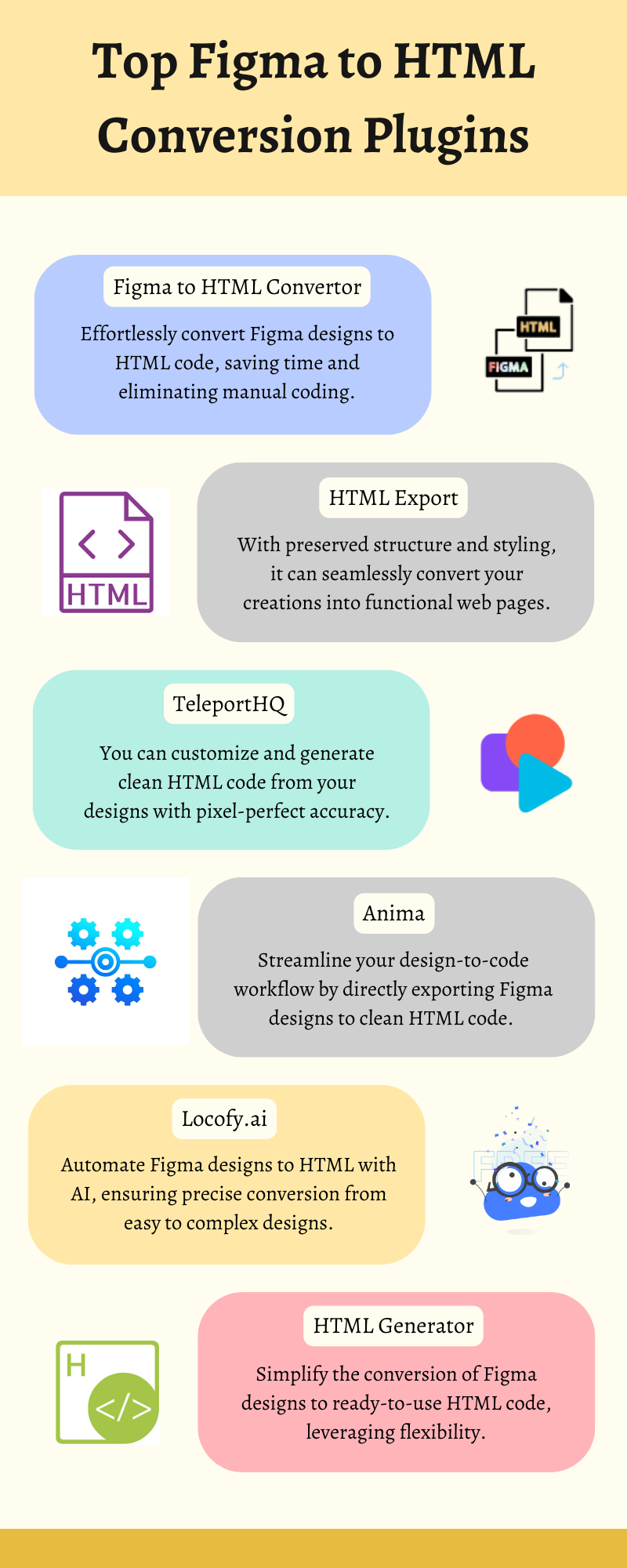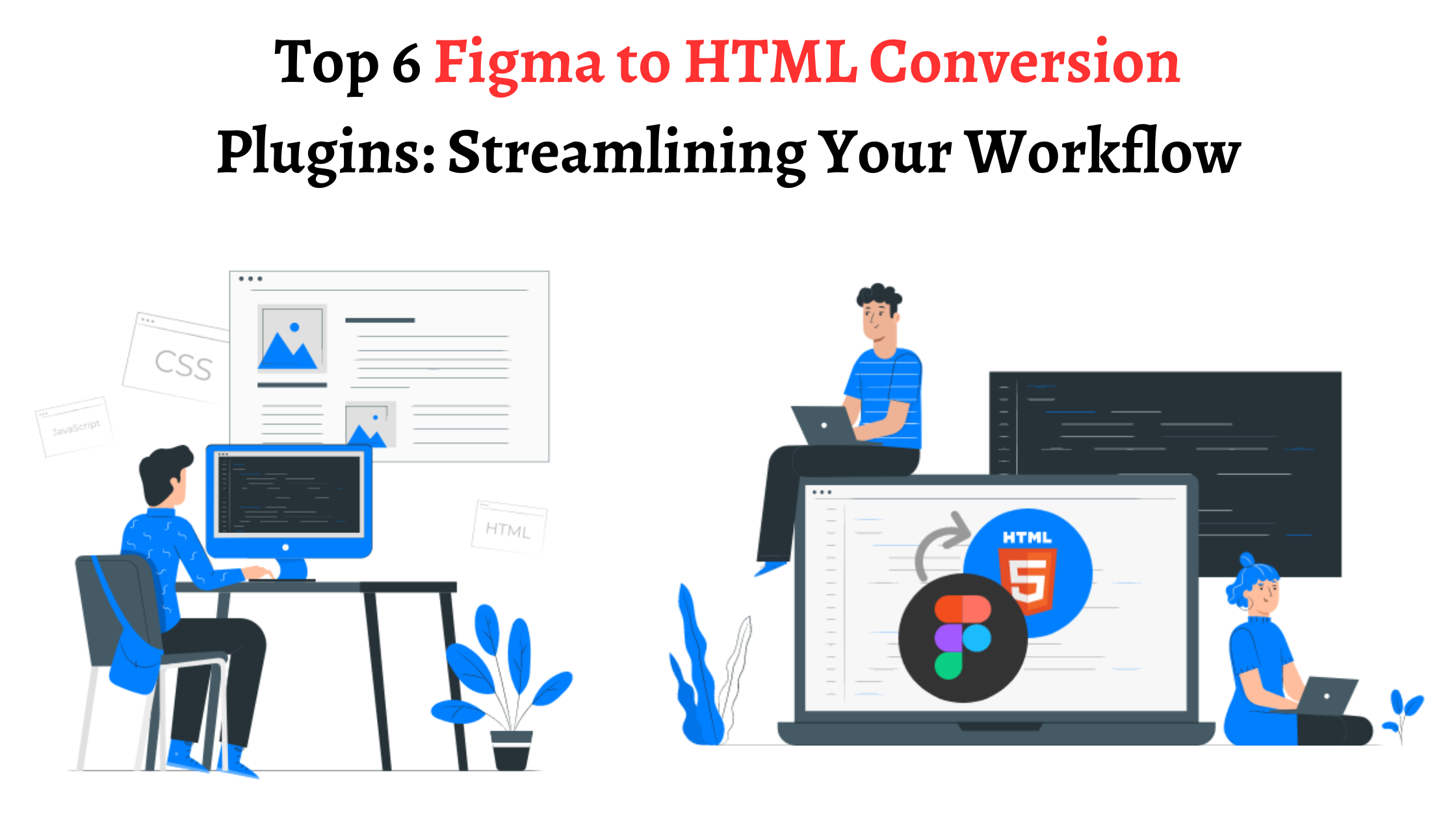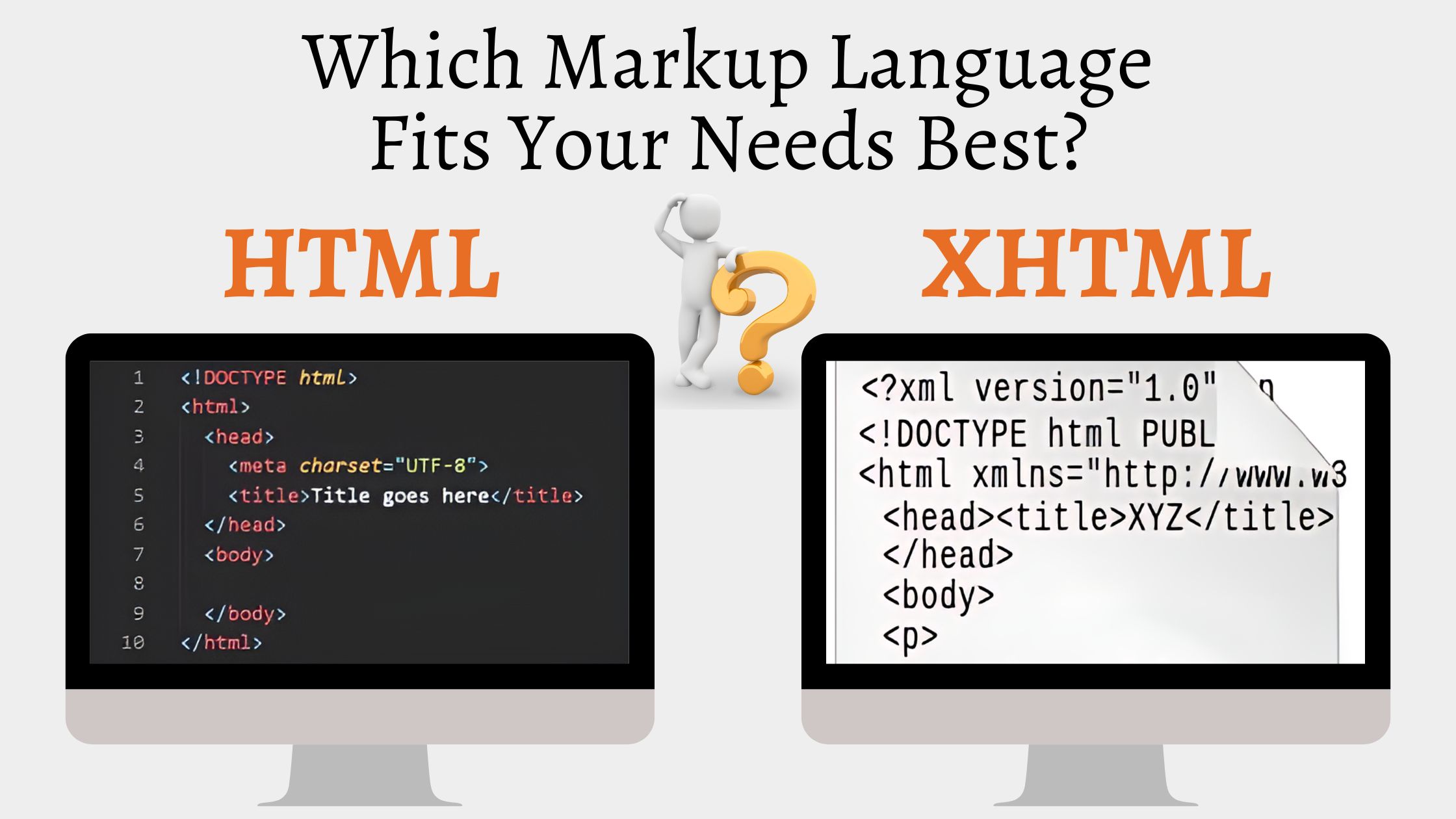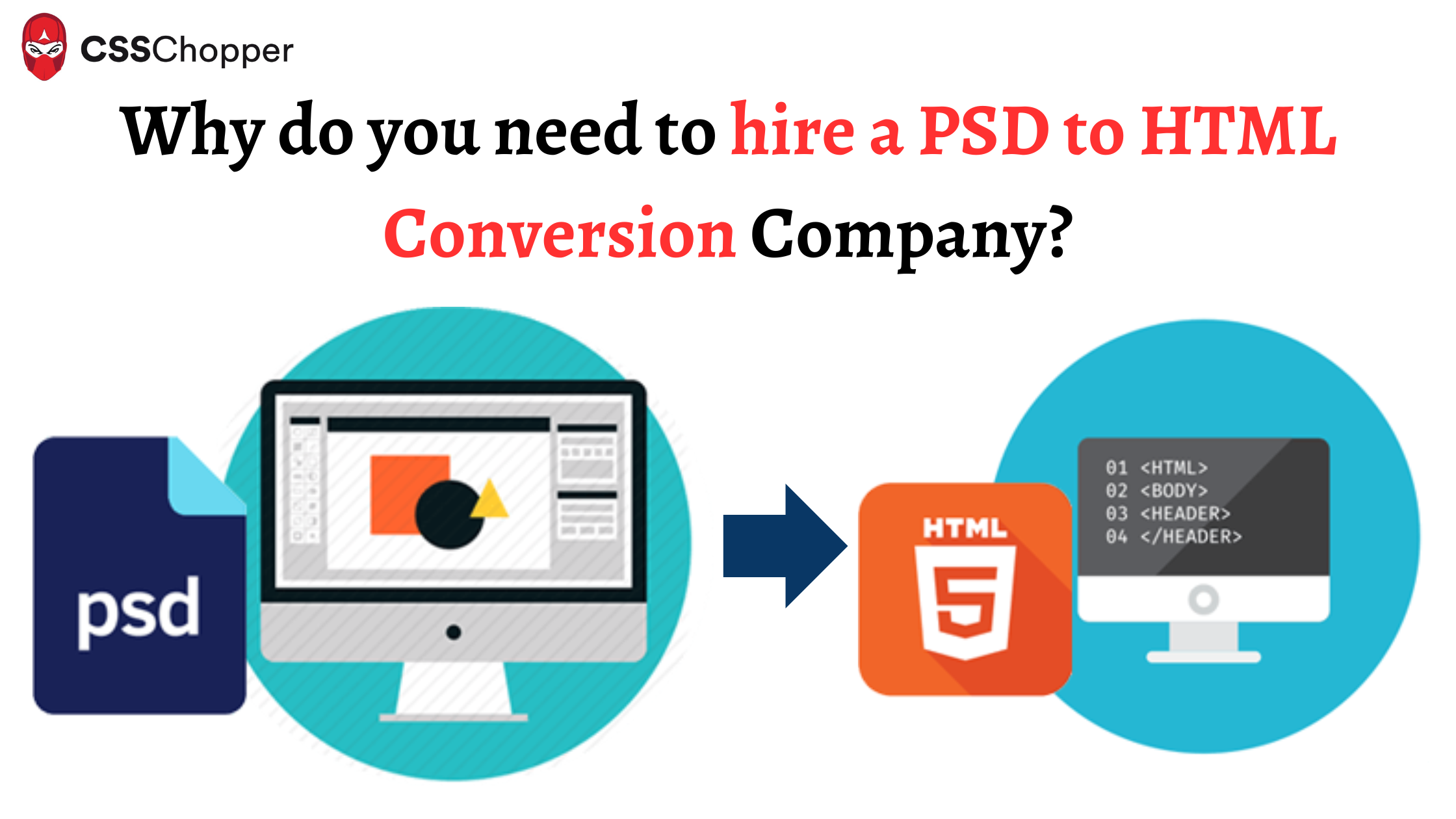Over the years, Figma has emerged as a favored designing tool among professionals. It has become an ideal choice with various features and capabilities in crafting web layouts, UIs, and prototypes.
However, the process of converting Figma design into HTML code can often be a time-consuming and arduous task. But with the help of several Figma to HTML conversion plugins, you can streamline your workflow.
This blog will discuss the top 6 Figma to HTML conversion plugins that can streamline your task. Plus, you will delve into common mistakes to avoid during the conversion process and also about the cost and benefits of this.
Let’s dive into this blog to discover each of the mentioned pointers.
Best Figma to HTML Conversion Plugins
1. Figma to HTML Converter
This plugin can easily convert your Figma sketch to HTML code. Thanks to this plugin’s responsive design support and user-friendly interface, your website will appear good on any device. Its plus point over others is that it quickly generates the HTML code without manual coding. Simply put, this plugin will allow you to convert Figma designs faster, resulting in saving time.
2. HTML Export
One of the popular plugins while converting Figma designs to HTML. It allows you to export the designs you have created in Figma as HTML with just a few clicks. With features such as support for multiple pages to the ability to export CSS and JS files, it has become an ideal choice.
Plus, it preserves the structure and styling of your designs, making it easy to convert them into functional web pages.
3. TeleportHQ
This plugin offers advanced features for seamless design-to-code transition. It provides a comprehensive solution for converting Figma designs into clean HTML code. You have the authority to customize your generated code. This makes it easy to match your required specifications.
This plugin simplifies the Figma to HTML conversion by automatically analyzing your design and generating optimized HTML code. It ensures pixel-perfect accuracy and maintains the integrity of your design elements.
4. Anima
Another notable and versatile Figma to HTML conversion plugin is Anima. It offers a set of comprehensive features helpful in streamlining your design-to-code workflow. By letting you export directly, your Figma designs to HTML code will result in saving you time and effort during development. Not only that, but you can also convert your Figma designs into CSS, React, or VueJs with this plugin.
With the help of this plugin, you can easily convert your designs into clean HTML code. It can also help you make your designs fully responsive in all screen sizes.
5. Locofy.ai
It is one of the most impressive plugins and is helpful in Figma to HTML conversion. As the name states, it uses AI to automate the process. This offers advanced capabilities for efficient design-to-code conversion.
You can simplify the conversion process by automating repetitive tasks. It will properly analyze your design and generate the HTML code accurately and precisely. It ensures seamless conversion from design to code, from easy to complex design elements and layouts.
6. HTML Generator
This plugin helps simplify the conversion process of your Figma designs to HTML code. With the help of this plugin, you can effortlessly export your designs into ready-to-go HTML code. This results in speeding up your development process.
One of its notable features is its support for CSS preprocessors like Sass or Less. This enables you to leverage the power of CSS preprocessors in your Figma to HTML conversion. This will enhance the flexibility and maintainability of your code.

Common Mistakes to Avoid
Now, we have discussed the top Figma to HTML conversion plugins. But what if you encounter some challenges or make mistakes during the conversion process? It’s important to be aware and how to avoid them. For this, we have highlighted some of the common mistakes to avoid while converting your Figma designs to HTML.
1. Ignoring Responsive Design
Neglecting responsive design during Figma to HTML conversion can make a website unresponsive to different screen sizes. This will automatically decrease the user experience of your website. Hence, giving vital importance to responsiveness matters the most. You can ensure this by working with a company that offers robust Figma to HTML conversion services. They will do the required work and perform testing and, based on the test, optimize your design accordingly.
2. Inadequate Optimization of Asset
Sometimes, we will include many assets on our website but cannot optimize them. Failing to optimize your website’s assets, such as icons, fonts, images, etc., will impact the website’s performance. This will make its loading speed slower than normal. Thus, you should focus on asset optimization while utilizing appropriate techniques. This will balance quality and file size, making it fast-performing.
3. Typography and Readability
When you design a layout on Figma with the right font, the website’s font size may appear different. It is because both Figma and web browsers use different rendering engines that might cause variations. Also, sometimes improper usage of line spacing, contrast, etc., can do the same. This will result in poor typography and readability.
To improve it, you should focus on some points such as:
- Selecting appropriate font sizes,
- Maintaining optimal line spacing, and
- Ensuring sufficient contrast between the text and background.
This will result in better readability and strike a balance between your website’s aesthetics and functionality.
Read Also:- A Comprehensive Guide for Design to Code
Advantages of Figma To HTML Code Conversion
Figma to HTML conversion has several benefits that can supercharge your workflow. These are:
1. Seamless Integration
Figma to HTML conversion plugins seamlessly integrate with Figma. This will allow you to convert your designs into HTML code. This eliminates the need to switch between diverse tools to get the work done. It results in streamlining your workflow and saving time.
2. Streamlined Development
Converting Figma designs to HTML streamlines the web development workflow. This eliminates the need to recreate designs in code, saving time and effort. By hiring a professional design-to-code company, you can entrust them with your project. The hired company can provide you with a solid coding foundation. This will allow them to focus on implementing functionality and interactivity. This, too, with no added burden of worrying about design elements.
3. Faster Development
The transition from design to development is paced with Figma to HTML conversion services. This will automate the coding process by allowing developers to start working on the functionality sooner. It will result in faster turnaround times for delivering the final web solution.
4. Customization Options
This conversion is one of the better ways to create a fully customized website based on your specific requirements. You can create a unique Figma file related to the web solution type you require. Afterward, you can look for professional Figma to HTML conversion services to match your desired design and create a website from it.
Cost For Figma to HTML Conversion
How much it costs to convert Figma to HTML? You must be concerned about the expenses involved in this conversion. However, determining the exact cost can be tough as it depends on several factors. Some of the cost-affecting factors are:
1. The Complexity of the Project
First and foremost, your project’s complexity is the most dominating factor that can influence the cost. It is obvious if your Figma solution has intricate layouts, advanced animations, advanced features, etc., it may require more time and effort to develop. This can increase the cost of the conversion.
2. Number of Pages
The more pages your design holds, the more time it will take. This will significantly increase the charges. It is because every page will take a lot of time for a company providing Figma to HTML conversion services.
3. Timeline
Indeed, turnaround time is also an important pointer that can influence the cost. The development cost will surely increase if your project is complex with a short deadline.
It’s important to note that the cost of converting Figma designs to HTML might vary greatly based on the particular needs of your project. To make an assumption, it can be said that it will cost you hundreds of thousands of dollars.
Conclusion
With Figma, you can create visually appealing designs and convert them into responsive websites. However, this can be a time-consuming process. Thankfully, conversion plugins can streamline your workflow with efficient solutions for converting Figma designs to HTML. To ensure a successful conversion, it’s important to avoid common mistakes, which are discussed in this blog.
The conversion cost can vary based on various factors discussed in this blog. You can take an idea of it by consulting an experienced Figma to HTML conversion service provider. By following these strategies, you can obtain optimal results in your project.
Categories
Recent Posts
Popular Posts
- How to Choose a Reliable Offshore Development Partner?
- Transforming Web Development with HTMX’s Declarative Approach for Dynamic UIs
- How to Outsource Web Development in 2025: Complete Guide
- What are the Top Web Development Trends for 2025?
- 5 Important Aspects to Consider When You Hire a PHP Developer





